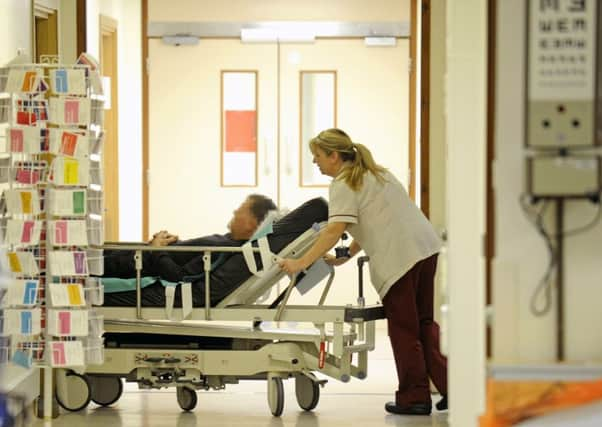QA takes '˜significant strides forward' as CQC report calls for urgent action to improve A&E


The Care Quality Commission (CQC) visited the Portsmouth hospital at the end of February and found ‘the trust’s performance was significantly worse than the England average’.
During the two-day unannounced visit the inspector found patients waiting up to 12 hours to be admitted, in-patients being cared for in unsuitable areas of the hospital known as escalation areas and ambulances waiting a long time to handover patients.
Advertisement
Hide AdAdvertisement
Hide AdBut Mark Cubbon, QA’s boss, said that in April there were no patients waiting longer than 12 hours to be admitted, the number of escalation beds had reduced and the number ambulances waiting longer than 30 minutes outside A&E had reduced by two-thirds.


‘The report is a stark reflection of the often harsh reality faced by our frontline staff who worked under extreme and sustained pressures over winter,’ Mr Cubbon said.
‘I can say without hesitation that every member of our staff comes to work to deliver the best possible care for our patients.
‘The delivery of care, patient experience and hospital environment described within the report is unacceptable to us all and I am truly sorry that despite all of our best efforts this winter, some patients and their families experienced delays to their care.’
The report published today found:
Advertisement
Hide AdAdvertisement
Hide Adn During December, January and February, the trust experienced significant and extreme operational pressures, due to insufficient capacity to meet demand for services, for much of this time. This put patients at risk.
n The emergency department was frequently crowded; patients were cared for in corridors and in ambulances outside the emergency department.
n The trust’s winter resilience plan had not been effective and had not yielded the required capacity and flow to manage the significant pressures.
However, Professor Ted Baker, chief inspector of hospitals at the CQC, found the senior members of QA were committed to making improvements and ‘there were many streams of work on-going to change internal processes to improve patient flow and operational performance’.
Advertisement
Hide AdAdvertisement
Hide AdHe said: ‘I am aware that following our previous inspections, there has been a renewed focus to improve performance; a number of work streams have been developed with system partners to address major issues with patient flow and operational performance.
‘It is clear these changes have not yet been fully embedded. We are reassured the trust is now working with commissioners across the local health and social care system to develop plans for next winter.
‘In the meantime the trust must take urgent action to address the concerns that have been highlighted during our latest inspection.’
In his recommendations to QA, Prof Baker said they must set clear targets and milestones, review progress and continue to drive initiatives to reduce length of in-patient stay and improve patient flow.
Advertisement
Hide AdAdvertisement
Hide AdMr Cubbon added: ‘We fully accept the findings of the CQC’s report, recognise the issues described and remain absolutely committed to addressing them.
‘Clearly we have some way to go but since January we have made significant strides forward.
‘At the centre of our efforts to improve are those within our community who rely on our emergency care when they are at their most vulnerable.
‘We owe it to all of them to ensure we find a sustainable solution.
‘Everyone within our organisation and indeed among our partners, is doing all we can, every day to make sure this is the case.’